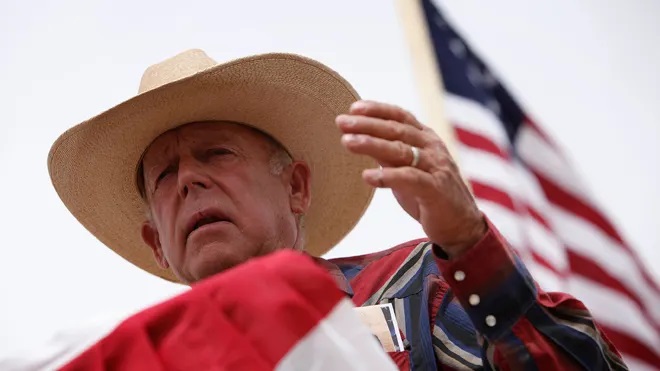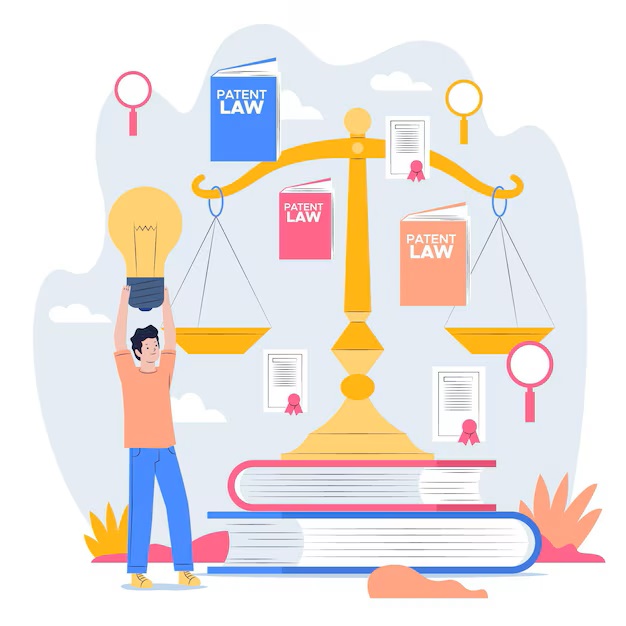The recent judicial decision has stirred significant discussion regarding the liability of certain personnel in the government. This pivotal outcome emphasizes the boundaries of responsibility when actions undertaken by public officials are called into question. The implications of this determination resonate deeply across various sectors of society, raising critical inquiries about oversight and justice.
Amid the complex interplay of legal principles and ethical considerations, this ruling presents a nuanced perspective on the balance between governmental power and individual rights. Supporters argue that such protections are essential for efficient governance, while critics contend that they undermine the foundational promise of accountability. As reactions unfold, the societal impact of this decision is likely to shape future discussions surrounding authority and transparency.
This scenario exemplifies a growing tension between safeguarding public duties and ensuring that those in power remain answerable for their conduct. As the narrative evolves, the dialogue around this ruling will undoubtedly influence perceptions of justice and equity within the governing framework.
Supreme Court’s Decision Explained
This section aims to elucidate the recent judgment that has significant implications for the liability of public officials in the execution of their duties. The decision revolves around the interpretation of legal standards that govern actions taken by those in positions of authority, particularly in relation to constitutional protections. The ruling has stirred considerable debate regarding the balance between effective governance and safeguarding individual rights.
Essentially, the ruling underscores the complexities surrounding legal accountability, particularly when it pertains to actions undertaken during the performance of official responsibilities. The implications of this verdict may shape how similar cases are approached in the future, as it sets a precedent for evaluating the limits of responsibility in specific contexts.
Key aspects of the ruling include an analysis of the legal frameworks that protect various officials, highlighting the court’s interpretation of immunities that, while designed to enable uninhibited public service, may inadvertently diminish recourse for individuals claiming misconduct. The judges emphasized the necessity of maintaining an effective operational environment for responsible parties while acknowledging the need for oversight and redress mechanisms.
The discussion around this case highlights a critical crossroads in the interaction between law enforcement practices and civil liberties. As society evolves, the parameters within which these entities operate are continuously scrutinized, prompting calls for reassessment of the boundaries of acceptable conduct in service to the public.
Impact on Federal Accountability Standards
The recent ruling carries significant implications for the standards of responsibility among national authorities. With the decision made, a precedent has been established that may alter the landscape of how officials are held liable for their conduct. This shift raises numerous questions about the adequacy of existing oversight mechanisms and the future of checks and balances within the governing framework.
Potential Consequences for Oversight Mechanisms
- The ruling may diminish the potential for individuals to seek redress through litigation against officials, affecting the deterrent effect of legal repercussions.
- With reduced accountability, there could be an increase in instances of misconduct, as the absence of stringent oversight may encourage reckless behavior.
- This may prompt a reevaluation of current policies and practices regarding how government entities monitor their employees’ actions.
Repercussions for Public Trust
- The perception of diminished accountability may erode public confidence in governmental institutions.
- Citizens may feel less compelled to engage with authorities if they believe there are insufficient mechanisms to hold individuals responsible for their actions.
- This shift could lead to greater calls for reform as stakeholders demand transparent processes and stronger safeguards against misuse of power.
Historical Context of Similar Cases
Throughout history, there have been pivotal instances where the balance between authority and individual rights has been continuously challenged. These occurrences often reveal a persistent struggle, reflecting the tension between public safety and personal liberties. Legal precedents established in the past shape the framework within which current disputes are evaluated, offering insights into how judicial opinions evolve over time.
Significant rulings in earlier decades have highlighted the complexities surrounding governmental power and its implications for citizens. For instance, pivotal decisions concerning law enforcement conduct and civil freedoms have underscored the imperative of ensuring due process while maintaining order. Cases like these serve as critical reminders of the ongoing dialogue regarding the extent of governmental responsibility in various contexts.
The ramifications of such historical judgments resonate even today, influencing contemporary debates about the boundary between state interests and the protection of individual rights. As society navigates these intricate legal landscapes, understanding past legal issues remains essential for comprehending current dynamics and their potential future implications.
Legal Implications for Civil Rights
The recent judicial decision has profound effects on the protection of individual freedoms and civil liberties, raising critical questions about the balance of power between the state and its citizens. The implications extend far beyond legal technicalities, resonating in the daily lives of ordinary people and their interactions with law enforcement entities.
Impact on Accountability Mechanisms
The ruling alters the landscape of personal accountability for law enforcement personnel, potentially leading to a culture of impunity. As mechanisms for redress become less accessible, it is crucial to consider the following:
- Increased difficulty for individuals seeking compensation for violations.
- Potential reluctance of citizens to report misconduct or abuse, fearing inadequate response.
- Impacts on community trust in law enforcement agencies.
Future of Civil Rights Protection
This legal development calls into question the future effectiveness of various civil rights protections. Advocacy and reform efforts must now adapt to this new reality:
- Advocates may need to pursue legislative changes to enhance oversight.
- Community organizations might focus on educating citizens regarding their rights.
- There may be a push for alternative frameworks to ensure accountability outside traditional legal avenues.
As society grapples with these changes, the pursuit of justice and the safeguarding of civil rights remain paramount. The evolving legal environment necessitates vigilance and proactive engagement from all sectors to uphold the values of fairness and equality.
Reactions from Advocacy Groups
The recent decision by the judiciary has sparked a wave of responses from various advocacy organizations, highlighting concerns over oversight and fairness. Many groups argue that this ruling may hinder efforts to hold individuals accountable for their actions, leading to potential negative implications for public trust and the pursuit of justice.
Concerns about Oversight
Numerous advocates have expressed their apprehension regarding the implications of this judgment. Key points raised include:
- Increased risks of misconduct without appropriate checks.
- Weakened transparency in government operations.
- A reduction in public confidence in law enforcement practices.
Calls for Legislative Action
In response to this pressing issue, several organizations are urging legislative bodies to consider new laws that would reinstate mechanisms for accountability. Suggested actions include:
- Implementing stricter guidelines for conduct.
- Establishing independent oversight committees.
- Encouraging greater community involvement in monitoring practices.
The debate surrounding this ruling continues, with advocacy groups committed to ensuring that justice and accountability remain fundamental principles in society.
Potential Consequences for Future Cases
The recent decision has far-reaching implications for how similar legal matters will be approached in the future. It raises questions about the balance of power between individuals and authorities, and how this dynamic may affect the interpretation of constitutional rights. As the legal landscape evolves, the ramifications of this ruling could significantly alter the trajectory of future litigation.
Impact on Legal Precedents
This decision sets a powerful precedent that might encourage broader interpretations of immunity for officials in various circumstances. As cases arise that challenge the actions of law enforcement and governmental bodies, the outcomes may increasingly favor institutional protections over individual grievances. This shift could deter individuals from seeking justice, knowing that their claims may face heightened obstacles.
Implications for Citizen Rights
Moreover, this ruling may influence how citizens perceive their rights when interacting with authorities. A sense of vulnerability may stem from the notion that systemic accountability is diminished, potentially leading to a chilling effect on civic engagement. Individuals could feel less empowered to report misconduct, fearing that their claims will be dismissed or inadequately addressed in light of this influential verdict.
Public Opinion on Law Enforcement Immunity
The perception of legal protections for those in law enforcement has sparked significant debate among various segments of society. Many individuals have expressed mixed feelings about the extent to which personnel in this sector should be granted immunity, especially in cases where misconduct is alleged. The prevailing attitude largely revolves around the balance between maintaining public safety and upholding individual rights.
Surveys indicate that citizens hold diverse views regarding this matter, often influenced by personal experiences, community dynamics, and overall trust in law enforcement agencies. Some individuals argue that these protections are essential for officials to perform their duties without the constant fear of litigation, while others believe that such an environment fosters a lack of transparency and oversight.
| Opinion | Percentage |
|---|---|
| Support full immunity | 25% |
| Support limited immunity | 45% |
| Oppose immunity | 30% |
The impact of recent legal interpretations and their implications on public confidence in law enforcement are subjects of ongoing discussions. As citizens continue to scrutinize practices within this domain, the future policy directions may very well reflect the shifting sentiments of the populace.
Q&A: Us supreme court insulates federal agents accountability
What was the main decision made by the US Supreme Court regarding federal agents in this landmark ruling?
The US Supreme Court’s decision essentially shields federal agents from being held liable for actions taken in the course of their official duties, even if those actions are deemed unconstitutional. This ruling offers significant protection to federal law enforcement officers, making it more challenging for individuals to sue for alleged abuses or misconduct, potentially impacting accountability within federal law enforcement agencies.
Why is this ruling considered a landmark decision?
This ruling is considered landmark because it sets a precedent regarding the legal immunities that federal agents can invoke when sued. By reinforcing the protections federal agents have against lawsuits, the Supreme Court has influenced the balance between civil rights and law enforcement authority, thereby affecting how accountability is approached in cases involving federal agents. This decision can lead to broader implications for the public’s ability to seek redress for grievances involving law enforcement practices.
How might this ruling affect the relationship between the public and federal law enforcement agencies?
The ruling could adversely affect public trust and confidence in federal law enforcement agencies. By limiting the accountability of agents, individuals may feel disempowered and less likely to report misconduct or pursue justice when they believe their rights have been violated. This can exacerbate tensions between communities and law enforcement, especially in cases where police actions are criticized. Additionally, it may deter whistleblowers from coming forward with information about misconduct within these agencies.
Are there any dissenting opinions or concerns regarding this ruling?
Yes, there are dissenting opinions and significant concerns voiced by some justices and civil rights advocates. Dissenters argue that the ruling undermines the principle of accountability that is vital to a functioning democracy. Critics also express fear that this decision may set a dangerous precedent that allows for unchecked abuse of power by federal agents, effectively removing a crucial avenue for individuals to seek justice and remedy for civil rights violations. Such concerns highlight a perceived imbalance between safeguarding agent duties and protecting citizens’ rights.
What impact could this ruling have on future cases involving federal law enforcement officers?
This ruling is likely to have a profound impact on future cases, as it establishes a legal framework that may discourage lawsuits against federal officers for their official conduct. It could lead to lower success rates for plaintiffs attempting to prove cases of misconduct or abuse, effectively providing federal agents with a strong defense against accountability claims. This may create a chilling effect in civil rights litigation, where individuals may opt not to pursue cases due to the perceived difficulty in overcoming the legal protections now reinforced by this ruling.
What are the main implications of the Supreme Court’s decision to shield federal agents from accountability?
The Supreme Court’s ruling has significant implications for both federal law enforcement practices and civil rights. By shielding federal agents from accountability, the Court potentially undermines the ability of individuals to seek justice for rights violations. This can lead to a culture of impunity within federal agencies, where agents may feel less compelled to adhere to constitutional standards, knowing they are less likely to face legal repercussions. Additionally, this decision may discourage individuals from reporting misconduct, fearing that legal action will not yield meaningful change or accountability. Overall, the ruling could create a chilling effect on civil rights protections and diminish trust in law enforcement agencies.
How does this ruling compare to previous Supreme Court decisions regarding law enforcement accountability?
This ruling marks a notable shift in the Supreme Court’s approach to law enforcement accountability, particularly in comparison to some earlier cases where the Court recognized the necessity of holding agents accountable for their actions. Historically, there have been instances where the Court has affirmed individual rights against unreasonable searches and seizures, often emphasizing the importance of accountability for law enforcement. However, in this landmark ruling, the Court adopted a more protective stance towards federal agents, which may be interpreted as a growing trend of prioritizing the operational capabilities of federal agencies over the civil liberties of individuals. This change raises questions about the balance between effective law enforcement and the safeguarding of individual rights, suggesting that the Justices may be leaning towards a more protective view of federal authority in recent cases.
What impact did the recent 2024 ruling by the U.S. Circuit Court of Appeals have on agency authority and judicial deference?
The U.S. Circuit Court of Appeals ruled in 2024 that courts must exercise their independent judgment when deciding whether an agency has acted within its statutory authority, potentially shifting the approach to judicial deference. This ruling may limit the courts’ tendency to defer to agency interpretations of statutes, challenging the longstanding precedent of courts deferring to agencies under administrative law principles. Chief Justice Roberts and other justices emphasized that such decisions require thorough judicial review, especially when it comes to agency interpretations in areas like the Consumer Financial Protection Bureau and the Environmental Protection Agency, marking a potential shift in the balance of powers between agencies and the judiciary.
How does the 2024 Supreme Court ruling on qualified immunity for federal officials impact the ability to sue federal agencies?
The 2024 Supreme Court ruling on qualified immunity has significant implications for legal challenges against federal agencies, as it reinforced protections for federal officials by upholding qualified immunity in specific cases. This ruling addressed whether individuals could sue federal agencies or officials for actions taken under their official capacity, with the court affirming that certain federal officials maintain absolute immunity, making it nearly impossible to sue federal agencies in some circumstances. This decision by SCOTUS may impact legal challenges against agencies such as the Federal Trade Commission and the Department of Homeland Security, reinforcing the separation of powers and limiting personal liability for federal officials.
What was the Supreme Court’s ruling regarding the authority of administrative agencies in relation to student debt relief, and how does it impact the regulatory process?
In a recent decision, the Supreme Court held that the authority of administrative agencies, such as the Department of Justice (DOJ), to interpret federal regulations can significantly affect areas of law, including student debt relief. The court determined that lower courts had improperly deferred to an agency interpretation of the law simply because a statute was involved. Justice Kagan emphasized that courts must exercise their independent judgment in deciding whether to overrule or overturn agency interpretations. The court overruled previous decisions from the district court that had favored the agencies’ interpretations, stating that such deference could create a sea change in how federal student aid is administered. The ruling clarified that while the executive branch has a role in interpreting statutes, federal judges must critically evaluate relevant questions of law without simply deferring to agency interpretations. As a result, the Supreme Court’s decision may lead to more rigorous scrutiny of agency actions, particularly in the context of consumer protection laws and other regulatory matters. It remains to be seen how this ruling will influence future cases involving the Equal Employment Opportunity Commission and the National Labor Relations Board, as well as local police and criminal charges. Overall, this legal news indicates a shift towards greater judicial oversight of agency interpretations, which could have lasting implications for the regulatory process in the U.S.
What implications does the recent Supreme Court ruling have on the interpretation of statutes by agencies, particularly in the context of the Second Amendment?
In a landmark decision, the Supreme Court, often referred to as SCOTUS, has made it clear that agency interpretations of statutes – like those related to the Second Amendment – must be scrutinized more closely. Justice Clarence Thomas emphasized that “courts must exercise their independent judgment” in reviewing agency action, rather than simply deferring to the interpretations provided by agencies. This ruling came in the context of a case called 5th U.S., where the court refused to accept the agency’s broad interpretation of the statute without thorough examination. The court made it evident that while agencies have expertise in their respective areas, their interpretations must align with the statutory language and intent. The ruling gave the U.S. judicial system a clearer framework for evaluating how agencies interpret laws, including the implications for regulations affecting rights under the Second Amendment. As legal analysts from Reuters noted, this decision may reshape how future cases are approached, particularly those involving contentious issues where agency interpretations have previously dominated the conversation. Legal professionals and scholars are encouraged to read next about the potential impacts this ruling may have on various regulatory frameworks across the country.
What are the key takeaways from the Supreme Court’s ruling regarding the review of agency action and its implications for the interpretation of statutes?
The recent ruling from the Supreme Court, often referred to as SCOTUS, has significant implications for how courts approach the review of agency action. The court emphasized that “courts must exercise their independent judgment” when evaluating an agency’s interpretation of a statute. This marks a shift towards more rigorous scrutiny of agency actions, particularly in cases like 5th U.S., where the court would not simply defer to agency interpretations. The decision clarifies that statutes – like agency regulations – must be interpreted in a manner that aligns with legislative intent and statutory language. This ruling reinforces the principle that while agencies can provide valuable insights into regulatory issues, their interpretations are not infallible and must withstand judicial review. This approach is expected to impact various sectors, including environmental regulations, healthcare, and labor laws, as courts increasingly assert their role in interpreting statutes against agency interpretations. Overall, this ruling sets a precedent for greater judicial oversight in the regulatory landscape, ensuring that agency actions remain accountable to the law.
How has SCOTUS addressed the role of judicial independence in reviewing federal agency decisions, including the U.S. 5th Circuit Court of Appeals’ stance on agency interpretations?
SCOTUS has emphasized that “courts must exercise their independent judgment” when reviewing federal agency actions, setting a clear expectation that courts should not automatically defer to agency interpretations without scrutiny. This stance was underscored by recent decisions, including the U.S. 5th Circuit Court of Appeals, which has increasingly questioned the level of deference traditionally granted to agencies. SCOTUS has asserted that independent judicial review is essential, especially when evaluating if agencies have acted within their statutory authority, aiming to ensure that regulatory actions align with legislative intent and protect against potential overreach in agency interpretations.








